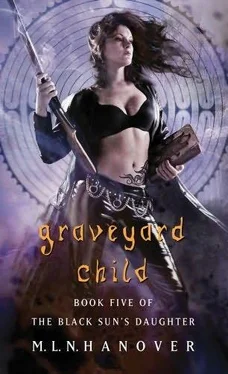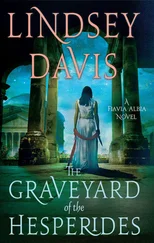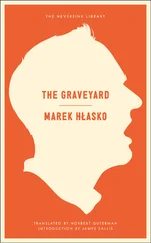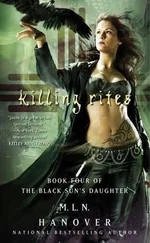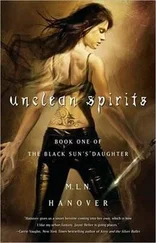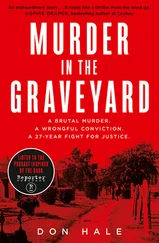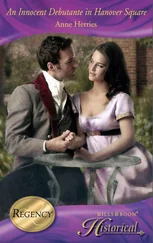I had planned out a hundred different ways this conversation could go. Everything from apocalyptic battles that ended with me watching everyone I cared about die, to hugs and beer and pizza. This hadn’t been on my list.
“You were with me?”
“I saw you take the oath. You knew everything .”
I could feel the power radiating from him like heat.
“Okay, the only thing I don’t understand is every word you just said.”
He blinked. Under his mask of skin, his expression shifted, changed. He tilted his head and narrowed his eyes.
“The induction,” he said.
I held up my hands, palms open, and shook my head. Rhodes sat on the edge of the bed. Springs squeaked under him. I couldn’t imagine how anybody could sleep on something that loud.
“Holy shit,” he said. “You really did forget me, didn’t you?”
“I’m guessing we ran into each other before somewhere?” I said.
He pressed his hand to his mouth. His eyes flickered in the middle distance, like he was looking for something in the empty air. I had the uncomfortable feeling that I’d been left behind, but I waited for him. He did the laugh-cough thing again.
“You really . . . you don’t know?”
“Really don’t,” I said.
“I met you . . . God, was it ten years ago? Not the last induction, but the one before.”
“The one before?”
He nodded.
“We came to you when you were leaving church on the Thursday before the rites. You came with us. I gave you that flower. You don’t remember any of it?”
I felt a little dizzy. If this was a trick, a way to get me disoriented and off my guard, it was working pretty well. The Invisible College held their inductions every seven years—prime number. Like cicadas. Midian Clark had told me that. The ceremony I’d broken up had been in August. Right over my twenty-third birthday, in fact. So seven years before that would have been . . .
Sixteen. Oh, holy shit, it would have been my sixteenth birthday. The one where I’d lost two days.
I felt the world drop a little, like an airplane hitting a rough patch of air. I was suddenly deeply aware of the half-finished tattoo at the base of my own spine. The one that I didn’t remember getting. The one Uncle Eric had helped me hide from Dad.
“What happened?” I said.
“All right,” Rhodes said, running his hands over his scalp with a sound like paper against paper. “This is going to be . . . So the Invisible College? It started off as a group of natural philosophers in the 1630s. They were looking at what makes living beings different from just normal matter, and in the course of their experiments they found riders. We all made a deal. The society acted as hosts for the riders—a way to reach the physical world—and in return, the same riders would bring their knowledge and experience to new generations of the society. The idea was that we could continue research over more than one lifetime. Normally all the knowledge and experience and insight that someone gets in the course of their life either gets put in books and essays that maybe keep five or ten percent of what they actually know, or else they’re just lost. We got around that.”
“So wait a minute,” I said. “Who are you, really?”
“I’m Jonathan Rhodes, really,” he said. “But I have access to Marian Cunningham, who was host before me, and Emile Canna, who studied the kabbalah in the 1920s, and Sean Korrigan, who was a biologist and undertaker and artist in Baltimore in the 1890s. I have the things they knew and the way they saw the world. We’re all part of one longer life than any single body could carry. Or at least than it could carry without ossifying. You need to get a young person in every now and again to see things in a different way. Sean Korrigan was a decent guy for his time, but his stance on women and blacks wouldn’t fit too well in the modern world. We’re different people, but we’re part of the same continuity.”
“Okay,” I said. “I think I can follow that.”
“Abraxiel Unas was one of us. Not a person. A rider. A continuity of people through time.”
I felt my heart start to beat a little faster. I felt like I was on the edge of something, like unwrapping a present on Christmas morning, except without the joy or sense of safety.
“Something went wrong?”
“It did,” Rhodes said. “You don’t remember us telling you any of this?”
“Nothing,” I said.
“Because I was there when Master Coin told this to you. I was sitting as close to you then as I am now.”
“I remember I was going to a sleepover at Monica Smith’s house and I came to in a hotel room with a tattoo and Uncle Eric. He said I’d called him from a bar, and that I’d been crying about someone named Sidney. I didn’t even know I had a tattoo until he told me about it.”
Rhodes’s face was pale under the ink.
“Yeah. That wasn’t true.”
“Picking up on that,” I said. “But the Graveyard Child?”
“Right. Sorry. It was a rider like the one I’ve got, but it went mad. One of the people it was riding was a man named Willis Ford. No one’s sure whether he drove the rider mad or if it broke him. He split from the College and started his own research. Gathering power to himself. Without the sigil work to keep him in control or the induction to help him move from generation to generation, he had to prepare bodies that would be easier to move into.”
“Qliphoth,” I said.
“He made shells. At first he’d do it by torturing someone. Traumatizing them until they were spiritually vulnerable and then keeping them in captivity until his last body grew old or infirm. Then he would move into the new skin.”
“The rider, you mean.”
“The rider and the man. Ford was a part of the new person’s consciousness just the way all my old hosts are part of mine. But each time it happened, it moved into a new mind that was broken. Every new life it stepped into was miserable and shell-shocked and angry. The illness of generations built up in it, along with the cruelty and the distance from whatever humanity Ford had possessed in the first place. Eventually it learned how to force other riders into bodies and then pull them back out. It began with small ones. Geisten and kobold . And then, over time, it moved to more and more powerful riders. Sometimes it would force several riders into the same body. Or induce possession and then exorcise the spirit, and then induce possession again so that whoever the host was to be might have gone through a dozen rounds of being ridden and having the rider ripped away.”
“Sounds like the kind of kid who tortured animals for fun.”
“No. Not fun. For knowledge. It was a vivisectionist of souls, and it learned things on its own that would have taken those of us who weren’t as bloody-minded ten times as long to discover. If we ever would have. Its plan was to eventually return to the College when it was strong and knowledgeable enough to put itself in the central position. That may not make sense, but the College centered on a single individual. Master Coin, until—”
“Yeah, really, really sorry about that.”
A shadow seemed to pass over Rhodes’s face, but he didn’t stop.
“Master Coin kept track of where it was and what it was doing. Three times he reached out to it. Tried to bring it back where we could help it. By then it had taken on the Graveyard Child’s name and started investing that with power. And then, eventually, the threat grew too great. We all agreed that it had to be stopped. And so we came to you.”
“Because I could stop it?”
“Because we saw that you were being made its heir. We thought we could help you escape. He’d already placed a rider in you. Something young but, we thought, powerful. We . . . well, we abducted you. Sorry about that.”
Читать дальше
